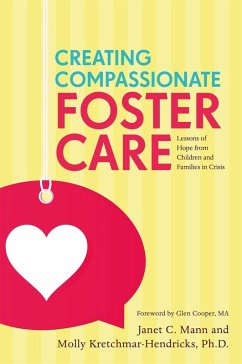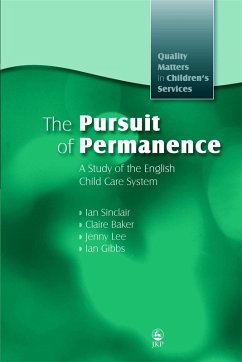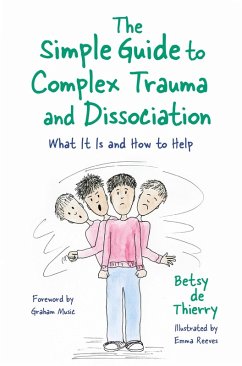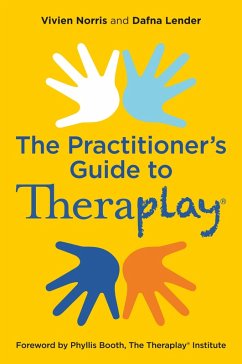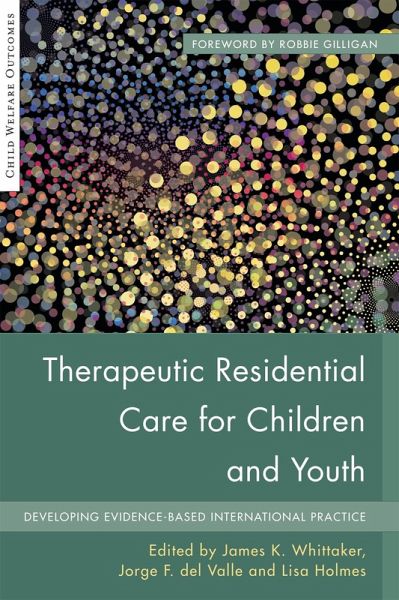
Therapeutic Residential Care for Children and Youth (eBook, ePUB)
Developing Evidence-Based International Practice
Redaktion: Whittaker, James K; Holmes, Lisa; del Valle, Jorge Fernandez del
Versandkostenfrei!
Sofort per Download lieferbar
32,95 €
inkl. MwSt.
Weitere Ausgaben:

PAYBACK Punkte
16 °P sammeln!
Therapeutic Residential Care For Children and Youth takes a fresh look at therapeutic residential care as a powerful intervention in working with the most troubled children who need intensive support.Featuring contributions from distinguished international contributors, it critically examines current research and innovative practice and addresses the key questions: how does it work, what are its critical "active ingredients" and does it represent value for money? The book covers a broad spectrum of established and emerging approaches pioneered around with world, with contributors from the USA,...
Therapeutic Residential Care For Children and Youth takes a fresh look at therapeutic residential care as a powerful intervention in working with the most troubled children who need intensive support.
Featuring contributions from distinguished international contributors, it critically examines current research and innovative practice and addresses the key questions: how does it work, what are its critical "active ingredients" and does it represent value for money? The book covers a broad spectrum of established and emerging approaches pioneered around with world, with contributors from the USA, Canada, Scandinavia, Spain, Australia, Israel and the UK offering a mix of practice and research exemplars. The book also looks at the research relating to critical issues for child welfare service providers: the best time to refer children to residential care, how children can be helped to make the transition into care, the characteristics of children entering and exiting care, strategies for engaging families as partners, how the substantial cost of providing intensive is best measured against outcomes, and what research and development challenges will allow therapeutic residential care to be rigorously compared with its evidence-based community-centered alternatives. Importantly, the volume also outlines how to set up and implement intensive child welfare services, considering how transferable they are, how to measure success and value for money, and the training protocols and staffing needed to ensure that a programme is effective.
This comprehensive volume will enable child welfare professionals, researchers and policymakers to develop a refined understanding of the potential of therapeutic residential care, and to identify the highest and best uses of this intensive and specialized intervention.
Featuring contributions from distinguished international contributors, it critically examines current research and innovative practice and addresses the key questions: how does it work, what are its critical "active ingredients" and does it represent value for money? The book covers a broad spectrum of established and emerging approaches pioneered around with world, with contributors from the USA, Canada, Scandinavia, Spain, Australia, Israel and the UK offering a mix of practice and research exemplars. The book also looks at the research relating to critical issues for child welfare service providers: the best time to refer children to residential care, how children can be helped to make the transition into care, the characteristics of children entering and exiting care, strategies for engaging families as partners, how the substantial cost of providing intensive is best measured against outcomes, and what research and development challenges will allow therapeutic residential care to be rigorously compared with its evidence-based community-centered alternatives. Importantly, the volume also outlines how to set up and implement intensive child welfare services, considering how transferable they are, how to measure success and value for money, and the training protocols and staffing needed to ensure that a programme is effective.
This comprehensive volume will enable child welfare professionals, researchers and policymakers to develop a refined understanding of the potential of therapeutic residential care, and to identify the highest and best uses of this intensive and specialized intervention.
Dieser Download kann aus rechtlichen Gründen nur mit Rechnungsadresse in A, D ausgeliefert werden.






